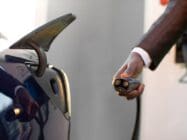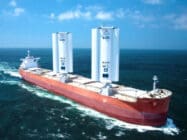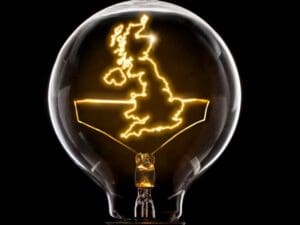
The UK-India collaborative initiative Innovating for Transport and Energy Systems (ITES) has announced its first intake of 20 cohorts to drive transport decarbonisation through diverse cleantech innovations.
Backed by Innovate UK, the Department for Science, Innovation and Technology, and government teams in India, and delivered by Energy Systems Catapult in partnership with the Indian Institute for Science (IISc), ITES will support small and medium enterprises (SMEs) to test, fund and fast-track their innovations to market that help decarbonise transport in India and the UK.
ITES will offer a ‘soft-landing’ for the SMEs, helping to safely develop, test and export solutions that help decarbonise transport. The collaboration will also help SMEs tackle scalability with go-to-market support and access to potential clients, funders and investment.
This first cohort of 20 UK-based SMEs includes teams in the fields of intelligent electricity system services, battery management, charging systems, energy storage, fleet optimisation, hydrogen and rail.
Have you read:
US boosts EV value chain with $15.5bn
Digital twin to decarbonise transport in UK
The different working areas and their respective SMEs include:
Intelligent electricity system Services
- Flock Energy, which uses machine learning to transform energy usage in factories and help them digitalise their operations. The company has developed proprietary algorithms that optimise energy consumption, improving efficiency and productivity.
- Terranow, which uses the potential of generative AI to unlock optimal efficiency in the generation and use of energy through focused solutions for forecasting, control and coordination.
Battery recycling and management
- Aceleron Energy, which develops advanced lithium batteries, aiming to accelerate the global shift to cleaner, more renewable energy and to drive sustainable battery technology.
- Faraday Battery Limited, which manufactures battery-packs up to 1MW scale for electric vehicles, including tractors, vans, buses and trucks. vehicle, it significantly reduces the lifecycle cost of the electric bus/truck.
- Nexmu, which focuses primarily on electric mobility and energy storage. The Nexmu team has integrated its battery management system and related capabilities in the electric powertrain into a single cloud-based platform.
Charging systems
- char.gy, which manufactures amd operatres charging infrastructure, funding, installing, operating and maintaining EV charge points for private landlords and local authorities for their residents who do not have off-street parking.
- Entrust Microgrid, chich specialises in smart microgrid systems that maximise user benefits from embedded solar PV, energy storage system, EV charger and other smart energy appliances, and provide the grid with flexibility.
- Petalite, which is a second-generation EV charging company that aims to solve the challenges impeding the roll-out of EV charging infrastructure.
- [ui!]uk urban integrated ltd, which is an IT consultancy advising local authorities, cities and metropolitan regions in their strategic planning and in the implementation and operation of smart city infrastructures and e-mobility solutions, such as charge point management systems and mobility service provider apps.
- Vertical Solar, which is a renewables developer aiming to bring to market new products that remove the traditional constraints associated with solar deployments.
- Voltempo, which develops ultra-high power EV charging hubs for heavy vehicle fleets and public service stations.
Energy storage and delivery
- Energineering LTD, which is a consultancy in the realm of industrial energy efficiency and project development. The last five years have seen the team concentrate on developing innovative energy storage solutions, including its patented MECHAPRES system, which uses a combination of reversible heat pumping and Composite Phase Change Material, latent thermal storage to support the needs of decentralised microgrids and DC EV Charging stations.
- LiNa Energy, which is developing and commercialising low-cost, solid-state sodium batteries as a safer, more sustainable alternative to lithium-ion. LiNa’s innovation is based on a novel sodium-metal-chloride planar cell, which they state unlocks the high power/energy density potential of established sodium battery chemistry.
- PowerUp, which provides an Energy as a Service model, replacing fossil fuel generators with battery PowerStations, using AI algorithms to predict battery behaviours and facilitate just-in-time swapping with renewable energy-charged replacements.
Also of interest:
India to get its first V2G system
India’s Tata selects UK for £4bn EV battery gigafactory
Fleet optimisation
- Flexible Power Systems, which aims to address the increased complexity, risks and cost arising from EV adoption.
The company’s platform provides automated EV fleet and charger management for van, bus, truck or mixed fleets that integrates data from across the business for a view of fleet operations. Part of what this enables, states the company, is the management of power constraints to avoid expensive grid upgrades.
Rail
- Riding Sunbeams, which decarbonises rail traction networks through the development and connection of unsubsidised, direct-wire renewable energy supply.
Riding Sunbeams is now working to develop and demonstrate the required technology to connect solar power and line-side energy storage to feed the Alternating-Current (AC), overhead line railways that make up most of the world’s electrified rail networks.
Hydrogen
- AqSorption, which builds renewable energy systems, concentrating on biogas and combined heat and power plants. Following a series of enhancements to its gasification technology, AqSorption has successfully adapted to move into production of hydrogen.
- Innervated Vehicle Engineering (IVe), which transforms diesel vans into hydrogen fuel cell vans, offering an alternative to diesel.
- JET Engineering Services, which works with and on behalf of customers to deliver solutions to technical engineering problems. Following a recent contract award to deliver a hydrogen production system on the subcontinent, and changing priorities in global markets, the company took a strategic decision to redirect its efforts into the green hydrogen sector, and has embarked on a programme to develop a range of projects and products to support this.
- Logan Energy, which specialises in the delivery of integrated engineering solutions incorporating hydrogen technologies for production through to refuelling.
The team offers a full turnkey service, from project inception & feasibility, design development, manufacturing, installation, and operation and maintenance.
Logan Energy has designed, built, and installed hydrogen production and refuelling stations, and are currently constructing further stations for buses, vans, passenger vehicles, and heavy-duty vehicles.
The 20 SMEs will have access to a range of acceleration support – from start-up mentoring and incubation services, to market research and real-world pilots with Indian businesses that help prove new products on the ground.
Paul Jordan, business leader for innovator support & international at Energy Systems Catapult, commented: “It’s a real pleasure to announce such a strong cohort of SMEs to join us at the start of this major innovation initiative between the UK and India.
“They represent some of the highest-priority innovations needed to tackle transport decarbonisation – from cutting-edge hydrogen, rail, and fleet solutions, to battery storage and management, and other technologies and services that can enable an electric vehicle-ready infrastructure.
“By helping these UK innovators to collaborate, commercialise and trial their solutions in the world’s fifth biggest economy, we hope to both turbocharge decarbonisation efforts and help unleash the economic potential that innovation offers.”
The Innovating for Transport and Energy Systems initiative was launched in May this year.








